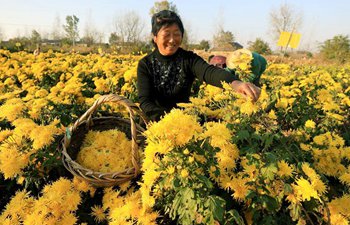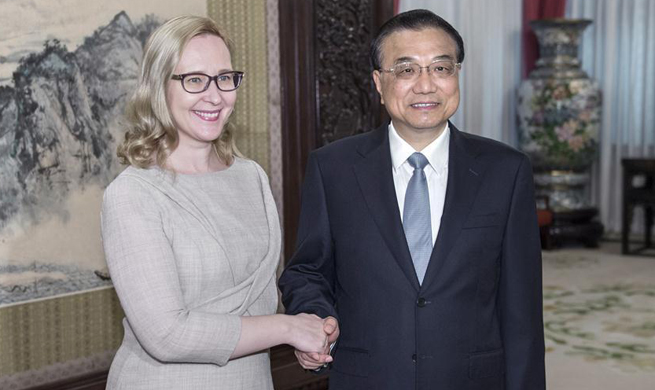BEIJING, Nov. 7 (Xinhua) -- As China encourages the use of renewable energy for sustainable growth, it is creating a huge biofuel market that Swiss specialty chemical company Clariant does not want to miss out on.
The chemical maker is looking for Chinese partners to commercialize its technology called sunliquid, which converts agricultural residue such as wheat straw into cellulosic ethanol, according to Markus Rarbach, head of biofuels and derivatives at Clariant.
"Biofuels and biochemicals made from agricultural residue could play a key role in leading today's economy into a more sustainable future by significantly reducing the environmental impacts," Rarbach said Monday at a press briefing in Beijing.
"Given China's huge population and growing economy, our sunliquid technology can play a key role in helping the country make that important fuel switch," Rarbach said.
As the energy required for the entire process is generated from the residue instead of fossil-based sources, the technology could reduce greenhouse gas emissions by about 95 percent compared with fossil fuels, according to Clariant.
The company is currently looking for third parties to license the technology, which could be applied in a wide range of areas including biofuel-powered vehicles and consumer products, Rarbach said.
Clariant's interest in the Chinese market comes at a time when the country is intensifying efforts to clean up the environment by replacing fossil fuels with renewable energy.
In September, the National Development and Reform Commission and National Energy Administration unveiled a plan to increase the use of bioethanol gasoline nationwide by 2020, setting goals to build an advanced liquid biofuel system and put into operation a demonstration facility that will be able to produce 50,000 tonnes of cellulosic ethanol a year.
While the plan was part of efforts to ease the oversupply of aging corn, which has been widely used as raw material for bioethanol, analysts said corn-based bioethanol is insufficient to meet long-term demand, and too much dependence on grain as energy sources could threaten food security.
China is currently the world's third-largest bioethanol producer and uses nearly 2.6 million tonnes a year. If the plan were successfully carried out, the annual capacity of bioethanol would reach 10 million tonnes, which would require about 30 million tonnes of corn, according to Han Jun, from the central rural work leading group.
By producing biofuel out of agricultural residue such as wheat straw, Rarbach said, the sunliquid technology will not compete with grain production.
China produces 800 million tonnes of agricultural byproducts like straw every year, which could theoretically be turned into 150 million tonnes of bioethanol, according to Clariant estimates.
"Based on China's strong agricultural sector and also the social target to create employment in the rural area, we believe our technology has substantial benefits, especially for China," Rarbach said.


















